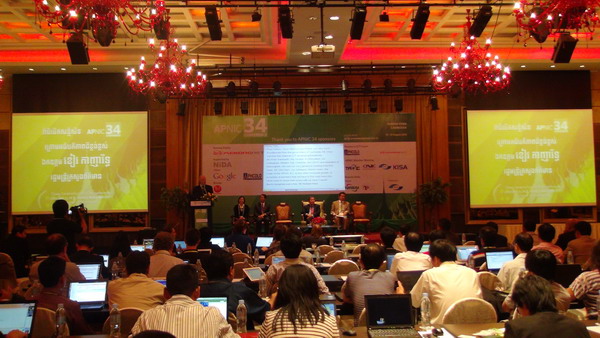On the 34th Asia-Pacific Network Information Center (APNIC) Open Policy Meeting held on August 31st, China Internet Networking Information Center (CNNIC) bid for the 36th APNIC conference and was granted the right to play host to the Meeting in Xi’an in 2013. That would be the second time that the top-level Internet address allocation Open Policy Meeting in Asia-Pacific area is presented in Mainland China after the 28th APNIC conference was held in Beijing in 2009.
As one of five Regional Internet Registries (RIR) authorities around the world, APNIC shoulders the responsibilities of ensuring fair allocation and administration of IP addresses as well as relevant digital resources and maintaining the stable and reliable operation of global Internet. APNIC holds two Open Policy Meetings annually. It is an Internet meeting with significant influences in Asia-Pacific and even the whole Asia. Discussions in the meeting mainly focus on technology and policy that bear impacts upon the development of Asia-Pacific Internet community. In light of the fact that Mainland China has become one of the most important regions for the popularization and development of Internet and boasts of increasing voice in the international Internet community, the right to host APNIC conference was finally conferred on Mainland China for the second time.
Granted the opportunity to host APNIC conference for the second time is of tremendous significance for Internet development in China as APNIC Open Policy Meeting has always been a platform for profound communication about Internet in Asia-Pacific region, and review and discussion concerning allocation policies for fundamental resources. As is pointed out by experts, our domestic Internet industry can accurately touch upon the pulse of policies and changes of Internet basic resources allocation, and offer suggestions and proposals that would facilitate Internet development via APNIC conferences. Chinese Internet engineers can listen to and learn from international experiences regarding IPv6 deployment through operators’ forums in APNIC conference, thus obtain implementation experiences, mitigate risks, and gain foresight from hot issues in Internet such as IPv6 implementation and construction of next generation Internet.
At the Conference, experts in Asia-Pacific region shared experiences and ideas concerning IPv6 deployment of IPv6 address program and IPv6 application in mobile Internet. Two policy proposals were approved at the conference. One proposal is to remove the requirement of multihoming imposed on the assignment of IPv6 addresses to final users, further detailing and slackening restrictions on the assignment. The other proposal is to modify the assessment term of IPv4 transfer and enable the same as those in other RIRs, so as to make possible the transfer of address among RIRs.


